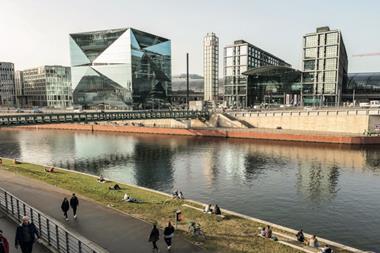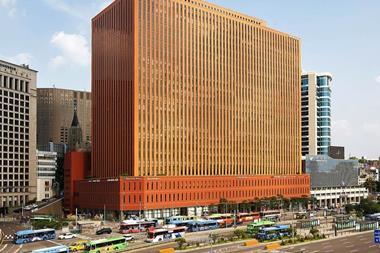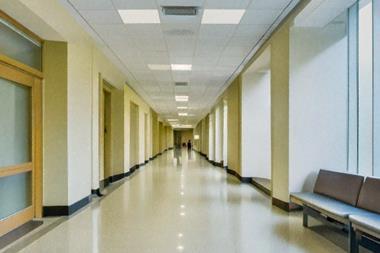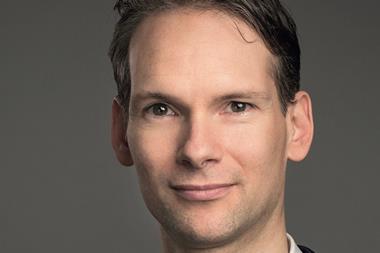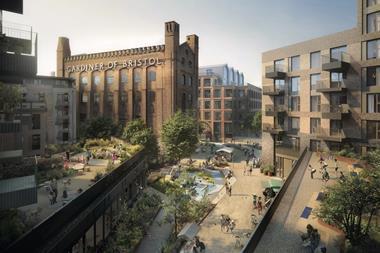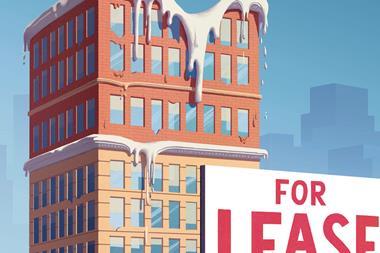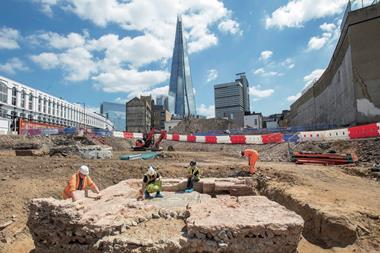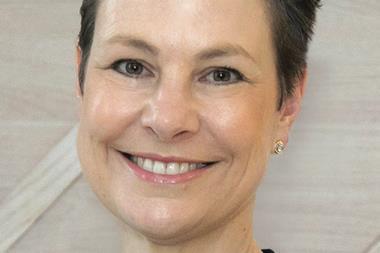Real estate investors have been piling into residential and logistics markets in recent years. But what about business parks on the outskirts of German cities? It is segment of the market that has proved resilient during the past 18 months for Sirius Real Estate. The London-listed company is invested exclusively in edge-of-town real estate in Germany and over the past five years has more than doubled its portfolio from €600m to €1.3bn.
During the pandemic it managed to invest and, importantly, grow and collect rent. This summer, it bought four business parks and a land parcel worth €84m and has about €100m to deploy in the coming months, according CEO Andrew Coombs.
Funds from operations (FFO), which represent the company’s cash flow, rose by 9.3% in March this year from €55.7m a year ago, according to financial statements. “In our last results, FFO were at €60m, and at the end of the year we anticipate a run rate of north of €70m,” Coombs says. “Some growth is acquisitive but most is organic.”
Sirius reinvests one third of its earnings back into the business and pays out two thirds as dividends. “This means our dividend is nearly 1.5 times covered by earnings,” Coombs says.
Investors have shifted from viewing Sirius as a real estate play to a growth stock, and by extension valuing it differently. Before the pandemic, investors rated Sirius on the back of its property valuations, but performance has more recently been assessed based on earnings and cash collection. Sirius recorded a 98.2% cash-collection rate in the year ending in March. Profits before tax stood at €163.7m, up by 47,7% the previous year.
In response to the pandemic, It set up a COVID-19 taskforce to speak directly to tenants idenfitied as vulnerable – either because of disruption within their industries, or a lack of management experience in leading during times of crisis.
“Through that direct communication with tenants, we collected 98%, not just of rent but also of service charge, and that’s why we were so confident in maintaining the dividend payment,” Coombs says. Sirius has continued to pay the dividend without taking government support or furloughing employees.
Sirius’ €1.3bn portfolio houses a wide range of tenants, encompassing office, industrial and manufacturing space, and storage. Factoring in its ‘Titanium’ joint venture with AXA IM Alts, the company manages €1.7bn of assets.
“Our portfolio is changing constantly,” Coombs says. “Four of five years ago we had 24% offices, now we are at 36%. The portfolio was worth €600m four to five years ago and now it is worth €1.3bn. That’s because Sirius does not only collect properties, we recycle them.”
The company has recycled about €400m worth of real estate in the past few years. When it buys sites, they are predominantly factories and warehouses, with limited office space.
“By the time we finish with it, you are talking about 10 to 15 buildings,” Coombs says. “We may change three or four of them to pure offices, and others to self-storage facilities, gym and a cafeteria, whilst leaving the rest to their original use as factories and commercial storage. So, our portfolio is not static. We buy assets with high vacancy, we develop communities and we sell or hold these assets afterwards.”
The focus is on the seven largest cities and adjacent towns. Frankfurt tops the ranking with 15 properties for a book value of €315.7m, ahead of Düsseldorf with 11 properties worth €153.2m, Stuttgart with seven properties valued at €184.3m, and Cologne with seven properties worth 145.8m.
In Berlin, Sirius operates four industrial parks in in Tempelhof, Gartenfeld, Mahlsdorf and in Berlin-Borsigwerke and has also properties around the German capital, in Potsdam, Dresden and Neuruppin. “That’s just over 15% of our portfolio and all of these parks are on the edge of town and include offices as well as manufacturing and storage space,” Coombs says.
Sirius believes that the future lays in the areas in the northeast of Germany – satellites of Berlin that are growing and being repopulated.
“We see that Berlin, Leipzig, Dresden are the cities that are accelerating the fastest, Munich still continues to grow, and then we see a slower picture in the west, from Stuttgart up to Essen, although we see Hamburg as an exception,” Coombs says.





